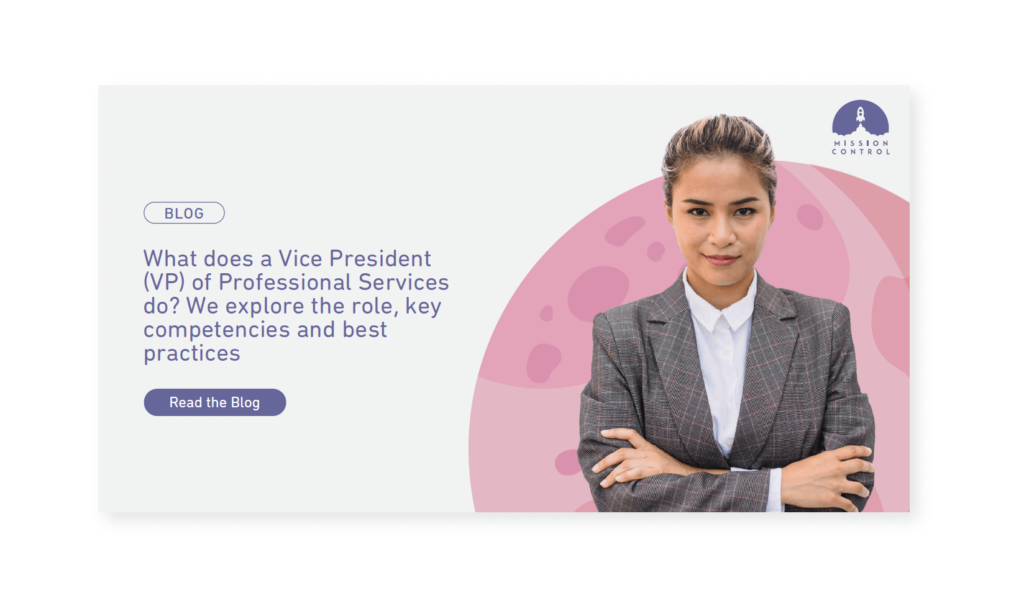A Vice President (VP) of Professional Services is a key executive in a company responsible for overseeing and managing the delivery of professional services to clients. The role is diverse and multifaceted, requiring a blend of leadership, strategic thinking, client relationship management, and operational expertise. In this comprehensive exploration, we will delve into the responsibilities, skills, challenges, and strategies associated with the role of a VP of Professional Services.
Overview of the Role:
The VP of Professional Services typically operates within service-oriented industries such as IT consulting, software development, management consulting, or any business offering specialized services to clients. The primary focus of this role is to ensure the successful delivery of services that meet or exceed client expectations, contribute to client satisfaction and retention, and drive business growth. The VP of Professional Services is a crucial link between the client-facing teams and the executive leadership, helping to align service delivery with overall business objectives.
Key Responsibilities:
1. Leadership and Team Management:
- Team Building: Building and leading high-performing teams of professionals, including project managers, consultants, and technical experts.
- Talent Development: Identifying and nurturing talent within the organization, providing mentorship and training to enhance skills and capabilities.
- Resource Allocation: Efficiently allocating resources to projects based on skills, expertise, and project requirements.
2. Client Relationship Management:
- Client Engagement: Cultivating strong, long-lasting relationships with clients, understanding their needs, and ensuring that the services delivered align with their objectives.
- Client Satisfaction: Monitoring client satisfaction through feedback mechanisms and implementing improvements based on feedback.
3. Strategic Planning:
- Business Strategy: Collaborating with executive leadership to develop and execute the company’s overall business strategy, with a focus on professional services.
- Service Expansion: Identifying opportunities to expand service offerings, enter new markets, or enhance existing services to meet changing client needs.
4. Operational Excellence:
- Project Management: Overseeing project management processes to ensure timely and quality delivery of services.
- Process Optimization: Continuously improving operational processes to enhance efficiency, reduce costs, and increase overall service quality.
- Risk Management: Identifying and mitigating risks associated with service delivery, ensuring projects are delivered on time and within budget.
5. Financial Management:
- Budgeting: Developing and managing budgets for professional services, ensuring financial goals are met.
- Revenue Growth: Collaborating with sales teams to identify upsell and cross-sell opportunities, contributing to revenue growth.
6. Quality Assurance:
- Service Quality: Establishing and maintaining quality standards for service delivery.
- Compliance: Ensuring that services comply with industry regulations and standards.
7. Communication and Collaboration:
- Internal Communication: Facilitating effective communication between different departments, ensuring alignment on goals and strategies.
- Collaboration: Collaborating with sales, marketing, and product development teams to ensure a unified approach to client engagement and service delivery.
Required Skills:
To excel in the role of a VP of Professional Services, individuals need a diverse set of skills, including:
- Leadership Skills: The ability to inspire and lead teams, fostering a culture of excellence and collaboration.
- Strategic Thinking: A forward-looking mindset to contribute to the development and execution of the company’s strategic goals.
- Client Relationship Management: Strong interpersonal skills to build and maintain client relationships.
- Operational Excellence: A keen eye for operational efficiency, process optimization, and risk management.
- Financial Acumen: The ability to manage budgets, forecast financial performance, and contribute to revenue growth.
- Communication Skills: Clear and effective communication both internally and with clients is crucial.
- Problem-Solving: The capability to identify and solve complex problems in a dynamic business environment.
- Adaptability: The capacity to adapt to changing market conditions, client needs, and industry trends.
Challenges:
The role of a VP of Professional Services comes with its share of challenges, including:
- Client Expectations: Balancing client expectations with the practical constraints of service delivery.
- Talent Retention: Attracting and retaining top talent in a competitive job market.
- Market Dynamics: Adapting to changes in the competitive landscape and industry trends.
- Technology Changes: Keeping abreast of technological advancements that may impact service delivery.
- Project Risks: Effectively managing risks associated with complex projects.
Strategies for Success:
- Client-Centric Approach: Prioritize understanding and meeting client needs to build long-lasting relationships.
- Continuous Learning: Stay informed about industry trends, emerging technologies, and best practices.
- Agile Operations: Foster an agile and adaptable organizational culture to respond to changing client demands.
- Data-Driven Decision-Making: Leverage data and analytics to inform strategic decisions and identify areas for improvement.
- Collaborative Leadership: Embrace a collaborative leadership style that encourages cross-functional teamwork.
In conclusion, the role of a VP of Professional Services is multifaceted, requiring a blend of leadership, strategic thinking, and operational excellence. Success in this role is marked by the ability to build strong client relationships, lead high-performing teams, and contribute to the overall growth and success of the organization. As the business landscape continues to evolve, VPs of Professional Services play a crucial role in navigating change and ensuring that their organizations remain competitive and resilient.
Mission Control is a native Salesforce PSA solution. We’re helping Professional Services VPs in over 25 countries across the world manage their projects, resources, time, reporting and much more. If you are keen to take a closer look at our platform you can head to our demo request form.




